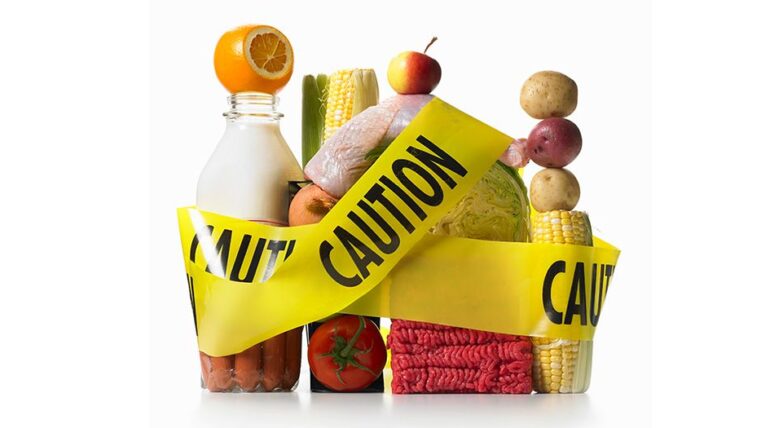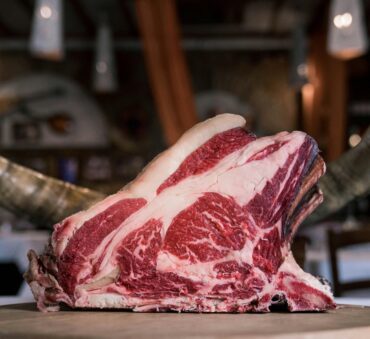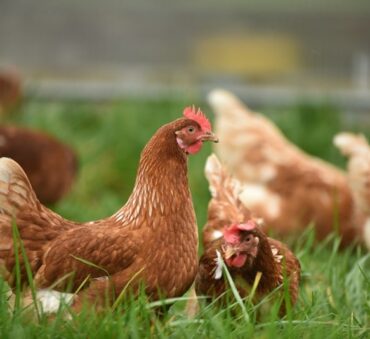Everything You Need to Know About Food Recall: Causes, Types, and Prevention
Food recalls are crucial for consumers’ safety. They involve pulling food from distribution because it imposes consumer safety risks and violates the FDA (Food and Drug Administration) regulations.
But how does a food recall usually go? Once the authorities identify the problematic product, all affected stakeholders are notified, and the manufacturer takes certain actions to remove the food from the shelves.
Consumer awareness is crucial as recalled foods can cause illness, especially in people with weakened immune systems or pregnant women.
Let’s cover all about food recalls, including their definition, different types, how to handle recalled food items, and other FAQs.
What is a Food Recall
A food recall occurs when a distributor or a manufacturer removes a given food from sale voluntarily or at the request of the FDA (or another responsible governmental agency) due to safety concerns.
The most common recalled foods are:
- Meat
- Fruits and vegetables
- Seafood
- Dairy products
- Nuts
- Baked goods
If a given food is recalled, authorities advise consumers to return it or dispose of it.
Why Are There So Many Food Recalls?
Between 2013 and 2018, food recall instances increased by 10%. But why are food recalls becoming more common?
The increase in food recalls does not necessarily mean an increase in pathogens in the food supply. In other words, most food recalls are precautionary, and do not necessarily have direct ties with any illness.
Additionally, more food recalls indicate that more companies are willing to recall their products if they come to the realization that the safety of their consumers is at risk.
Next, let’s cover the main reasons why food recalls happen.
1. Contamination with Dangerous Microorganisms
About 48% of all food recalls are due to product contamination with pathogens. Such pathogens include bacteria, parasites, and viruses.
Some of the biggest food recalls fall in this category. For example:
- The Peanut Corporation of America: The company’s peanut-based products were contaminated with Salmonella. More than 3,200 products were recalled, causing a major financial hit to the peanut industry. Additionally, reports stated 9 deaths and 600 cases of Salmonella sickness across 46 states.
- Menu Foods: The recall involved pulling over 90 dog and cat food brands out of the market. The reason? Gluten in these foods was discovered to contain melamine – a dangerous chemical used in plastic production. This caused various diseases and deaths in many animals (10,000 reported cases) across North America.
2. Mislabeling
Missing crucial label information, including allergens, can also result in a food recall. Misbranded products (containing false or misleading information) can also be recalled.
For example, in May 2023, FSIS pulled out a frozen meatloaf product that did not include all ingredients and allergens. The product was labeled “Meatloaf & Tomato Sauce Mixed Rice and Spinach,” but it did not disclose it contained milk. There were no reported cases of adverse reactions.
3. Presence of Foreign Matter
Foreign matter such as glass, metal, or plastic particles is another serious concern and cause for a recall. Consuming contaminated food can expose users to serious health risks.
Some notorious examples of food recalls that occurred due to foreign contaminants are:
- Co-op: The retailer released 12-pack British Beef Meatballs contaminated with plastic and carrot cake, which could have contained glass pieces. All products were recalled, and the retailer issued warning notices to all stores.
- Danone: The Danone yogurt producer recalled three batches of dairy products due to the possibility of metal contamination.
Types of Food Recall
Food recalls can happen on either consumer or trade level. Let’s take a look at each of these:
Consumer Level
This type of food recall happens at the production, distribution, and retail levels. This includes pulling out products that have already been sold and are in the possession of consumers.
A few common foods recalled at this level include:
1. Pet Food Recall
Between 2018 and 2022, over $52 billion worth of pet food was sold in the US. About 81 million pounds of this food was recalled.
Out of this we can mention:
- 60 million pounds of food was recalled due to aflatoxin contamination (one of the most common dog and cat food recall reasons).
- Over 12 million pounds were recalled for containing excess amounts of vitamins (mostly vitamin D).
- 9 million pounds were recalled for containing pathogenic bacteria.
- 23 thousand pounds were contaminated with foreign objects.
- The three main manufacturers who had the most amount of pet food recalled were:
- Midwestern Pet Food (over 64.8 million pounds of dry food): Due to aflatoxin and pathogenic bacteria contamination
- Hill’s Pet Food (over 10.8 million pounds of canned food): Due to excess vitamin D
- Sunshine Mills (over 2.8 million pounds of dry food): Due to aflatoxin and pathogenic bacteria contamination
2. Whole Foods Recall
Whole foods are some of the most recalled foods. That’s because whole foods like vegetables, fruits, meats, grains, and nuts can get contaminated with different bacteria.
Some of the most serious whole foods recalls are linked to:
- Leafy greens: Over 4 million cases of leafy greens were recalled in 2021. This is one of the most often recalled whole foods, as contamination can quickly spread in the processing plant.
- Fruits: Fruits like peaches, watermelon, and papayas are all vulnerable to Salmonella contamination. For example, in 2020 alone, about 113 million pounds of peaches were recalled. Other fruits like melons, watermelons, and papayas usually get contaminated when they’re cut presale. If the surface of the fruit is not washed well, the bacteria can easily get into the fleshy part of the cut pieces.
- Meat: Raw meat like ground beef, poultry, and turkey can easily contaminate with Salmonella at the processing plant where the meat is precut. In 2022, manufacturers recalled 28 thousand pounds of ground beef, 195 thousand pounds of chicken, and 389 thousand pounds of turkey meat.
3. Baby Food Recall
Around 95% of the 168 baby foods tested by HBBF contained toxic heavy metals (including lead, mercury, arsenic, and cadmium).
Some of the brands that reported high levels of toxic heavy metals include:
- HappyBABY
- Beech-Nut
- Earth’s Best Organic
- Plum Organics
- Parent’s Choice
- Sprout Organic Foods
Did you know: In 2021, when Gerber and other dangerous baby food brands were asked to recall their products, they didn’t issue such a recall.
Trade Level
This involves removing the food from distributors and retailers (this includes hotels, restaurants, and hospitals) and typically involves food that’s sold wholesale.
Due to the larger scale, food producers must be well-prepared for a situation where they need to recall a specific food. Here are a few steps that can be taken on such occasions:
- Plan for a recall: Whether you have never dealt with a recall or think it’s unlikely to happen to you, it’s always best to have a plan of action in case the worst happens. Think: What’s the first thing to do when you discover you need to recall your products? Whom do you contact first? How do you pull out your products efficiently?
- Contact all affected parties: Once you find out that you need to do a food recall, you need to contact all affected distributors and retailers. The goal is to inform them as soon as possible to minimize risk.
- Pull the recalled products: This is one of the most challenging steps. How do you recall your products quickly and efficiently? You need to think of the logistics and infrastructure you will need to do that. If you feel overwhelmed by all the things you need to think about and organize, you might want to opt for a professional food recall management company.
- Figure out what to do with the recalled products: Once you deal with pulling the food off the shelves, you must figure out what to do with it.
What is the Best Way to Handle Recalled Food Items
There’s the very good question of what to do with all the recalled food. More often than not, you need to dispose of it in a landfill or incinerator.
But on rare occasions, you might be able to turn the food waste into an environmentally friendly solution. Not sure whether your recalled food can be turned into something useful? Use the services of a knowledgeable food waste recycling company like Skip Shapiro Enterprises to handle all your food recall needs.
What to Do When a Food Recall Occurs: Dos and Don’ts
There are a few crucial dos and don’ts and other details around the logistics of food recall operations.
Dos:
- Act quickly: Time is essential for minimizing potential risks, so be ready to act immediately after receiving information about a food recall.
- Set up recall procedures: Have a clear plan set in place in case a food recall happens. Outline all key steps and stakeholders, including their roles and responsibilities.
- Communicate effectively: Inform all affected parties (suppliers, distributors, retailers, and consumers) and give them clear instructions on what the next steps are.
- Ensure compliance: Collaborate closely with all food safety-related regulatory bodies to ensure your food recall process complies with all regulations.
- Remove affected products: Remove the recalled products from all supply chain distribution channels to eliminate the risk of consumption.
- Conduct thorough investigations: Define what caused the issue in the first place and why you had to recall the product. Take action to prevent the same problem from occurring in the future.
Don’ts:
- Delay or dismiss the recall: Ignoring or delaying a food recall can lead to serious public health risks and possible legal implications for your company.
- Fail to provide accurate information: Do not try to hide any information. Be honest and transparent about the incident to all your stakeholders.
- Continue selling the recalled products: Continuing sales of recalled items can lead to serious illness or injury for the consumers, so you should avoid this at all costs.
- Make faulty claims: Remain transparent and honorable to all stakeholders. Address consumer concerns but avoid making any misleading claims.
- Neglect documentation: Keep a detailed record of each step of the food recall process – this is crucial evidence of regulatory compliance.

Manage Food Recalls: Infrastructure, Logistics, and Legalities
Managing a food recall operation can be quite a hassle – you must take care of this huge batch of products, pull it out from all distributors you initially shipped it to, and destroy (or process) the recalled items. And on top of that, you’re at a financial loss.
Food recalls involve complex (and expensive) logistics at each stage of the distribution pipeline – from the manufacturing plant and warehouses to the distributors, retailers, and consumers.
Besides, there are all the legal details surrounding food recall initiatives, as the process is not as simple as taking products off the shelves. You need to do your due diligence to notify all concerned parties and ensure all chain of custody reports are properly documented and compliant with all regulations.
The best way to handle such a complex procedure is by trusting an expert food recall management company like Skip Shapiro Enterprises. We can handle the whole recall process, including logistics, compliance, disposal, tracking, reporting, and even food waste recycling.
Meanwhile, you can focus on eliminating the problem that caused the food recall in the first place and continuing all your regular operations.
Entrust Your Food Recall Operations to the Experts
Let’s face it – no one likes to go through a food recall.
But when you do, it’s important to act promptly, communicate effectively, and stay in compliance with all regulations. With Shapiro’s help, you can rest assured that the operations will handle all food recall intricacies with complete efficiency and professionalism.
Want a hassle-free food recall execution plan? Call us today, and we’ll handle everything from logistics to disposal.
Food Recall FAQs
Still have some questions on food recalls? Here are the answers to some commonly asked questions:
1. How is recalled food destroyed?
Responsible agencies usually dispose of recalled food in landfills or by incineration. To ensure you dispose of the recalled food correctly, check your local, state, and federal regulations.
2. What is the biggest food recall?
The most major food recall is the 2008 Westland-Hallmark Meat Company scandal. As a result, the company had to recall 143 million pounds of beef due to concerns about mad cow disease.
The producer was charged $497 million in a lawsuit and went out of business.
3. Which country has the most food recalls?
The country with the largest share of recalls (6.7%) is Turkey. Other countries with high food recall percentages are Germany (6.5%), France (5.1%), India (5.1%), and China (5.1%).
4. What was the first food recall?
The first food recall in the US happened in 1920 after a botulism illness outbreak caused by canned olives. This caused the government to pull the product.
5. What are the benefits of food recalls?
While no one wants to go through a food recall, there are some benefits to following all food recall procedures. For example:
- You show you are accountable for your actions and you’re willing to take responsibility.
- You protect consumers from potential injury, illness, or in some cases, even death.
- You get the chance to understand how to eliminate the same default in your next batch of products.
- You can avoid or minimize any possible legal complications.
Baily Ramsey, an accomplished marketing specialist, brings a unique blend of anthropological insight and marketing finesse to the digital landscape. Specializing in educational content creation, she creates content for various industries, with a particular interest in environmental initiatives.



